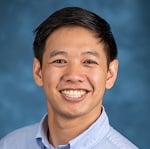As many Family Medicine colleagues across the United States complete residency, I find myself looking back to those challenging yet invigorating years. Residency training certainly solidified my clinical skills, from diabetes to pregnancy labor management, but also heightened my interest in social issues. Training in Western North Carolina meant working in a non-Medicaid expansion state where Black babies were three times more likely to die within their first year of life than white babies and where those struggling with opioid addiction were often marginalized. Each day seemingly brought more patients enduring the direct consequences of unresolved systemic problems. It was heartening to see a medical community stepping up to fill existing gaps: creating a free care infrastructure for the uninsured; targeting health disparities in the delivery room by empowering doulas for Black and Brown moms-to-be; and leveraging physician privilege by raising their voices to aid the ostracized. Examples like these fueled a desire to find avenues to advocate for my patients and their families beyond clinical encounters.
Last summer I moved to Washington, D.C. to begin a health policy fellowship. At the Robert Graham Center, I joined a small team of clinician-researchers, social scientists, geographers, and economists working closely on policy relevant primary care research. Since its inception 20 years ago, the Robert Graham Center has built a lasting tradition of training and mentoring primary care researchers via its monthly Visiting Scholars Program and yearly fellowship. A scholar’s visit tends to be oriented around a single project, like this story map examining sex education legislation across the United States. Meanwhile, fellows experience a much broader spectrum of activities spanning clinical care, medical student teaching, resident supervision, and multiple research projects. I gravitated towards the breadth of such experiences, optimistic that it would reveal new ways to become a stronger advocate.
As I reflect on this fellowship year, several factors were particularly critical to my success and would likely be invaluable to other early career physicians pursuing a career with policy, advocacy, or research elements in primary care.
Autonomy. Throughout the year, I had the freedom to craft my own research questions and to lead projects as they progressed. While some of this work has led to publications and presentations, I am particularly proud of leading an expert panel on the impact of Teaching Health Centers (THC) at the Capitol. As a recent THC graduate, I had the privilege of highlighting the benefits of my training as policymakers considered the program’s future funding. Autonomy in this supportive learning environment made my successes and failures much more meaningful.
Building a Network. Perhaps one of the strongest benefits of this fellowship is the opportunity to interact with other clinician researchers, policy wonks, scholars, and fellows in primary care. Various formal and informal meetings, as well as close working relationships with partner organizations, provided numerous encounters to connect and collaborate. Indeed, one of my current projects nearing completion is an updated Primary Care Chartbook (a compendium of data that researchers and policymakers can reference as they think about the who, what, when, where, and how of primary care delivery in the United States), crafted by team members from the Robert Graham Center, American Board of Family Medicine, and IBM Watson Health.
Mentorship. The fellowship boasted a team of mentors who supported my research goals, fostered my policy and advocacy interests, and guided my career decision-making. While their advice was invaluable, one mentor often took direct action and shared opportunities to amplify my voice. This led to new and exciting roles like interpreting medical information for media members as they reported breaking news.
The year certainly brought its share of challenges as well. The COVID-19 pandemic changed our way of life, and it was certainly no different for my fellowship experience. Many meetings, conferences, and events were postponed or cancelled, and non-COVID related work was sidelined. But amidst the chaos, I was proud of the Robert Graham Center for quickly pivoting much of its work to support primary care and patients during an uncertain time. Our team leaned on our strength in secondary data analysis and explored the potential implications of COVID as it lingered in our daily lives: we projected an additional 68,000 deaths of despair (drug, alcohol, or suicide related deaths) from COVID-19 and called for comprehensive policy solutions to address the underlying issues; our HealthLandscape colleagues developed mapping tools to identify areas with populations at high-risk for severe COVID-19 and an additional map to assess the potential economic and healthcare access implications of the attrition of Family Medicine practices; and our senior scholar raised critical questions about how our health system should evolve as it recovers from the pandemic. In a way, this reminded me of residency training as a community adapted to meet the needs of its most vulnerable members.
As my fellowship nears the end, I feel tremendous gratitude for the rich experiences that have helped me grow professionally and personally. This past year has solidified my passion for clinical care and teaching and pushed me to seek new challenges. This year will serve a strong model as I return to North Carolina to craft a new health equity and policy fellowship—an opportunity for future physicians to find their own paths beyond the clinic walls.
**Feature photo obtained with standard license on Shutterstock.
Interested in contributing to the Harvard Primary Care Blog? Review our submission guidelines
Interested in other articles like this? Subscribe to our bi-weekly newsletter

Brian Antono, MD, MPH, is a Family Medicine Physician and the Robert L. Phillips, Jr. Health Policy Fellow at the Robert Graham Center and the Georgetown University Department of Family Medicine in Washington, D.C.
- Share
-
Permalink


